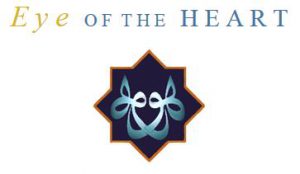
THRESHOLD SOCIETY NEWSLETTER ~ JAN 2020
***
Happy New Year!
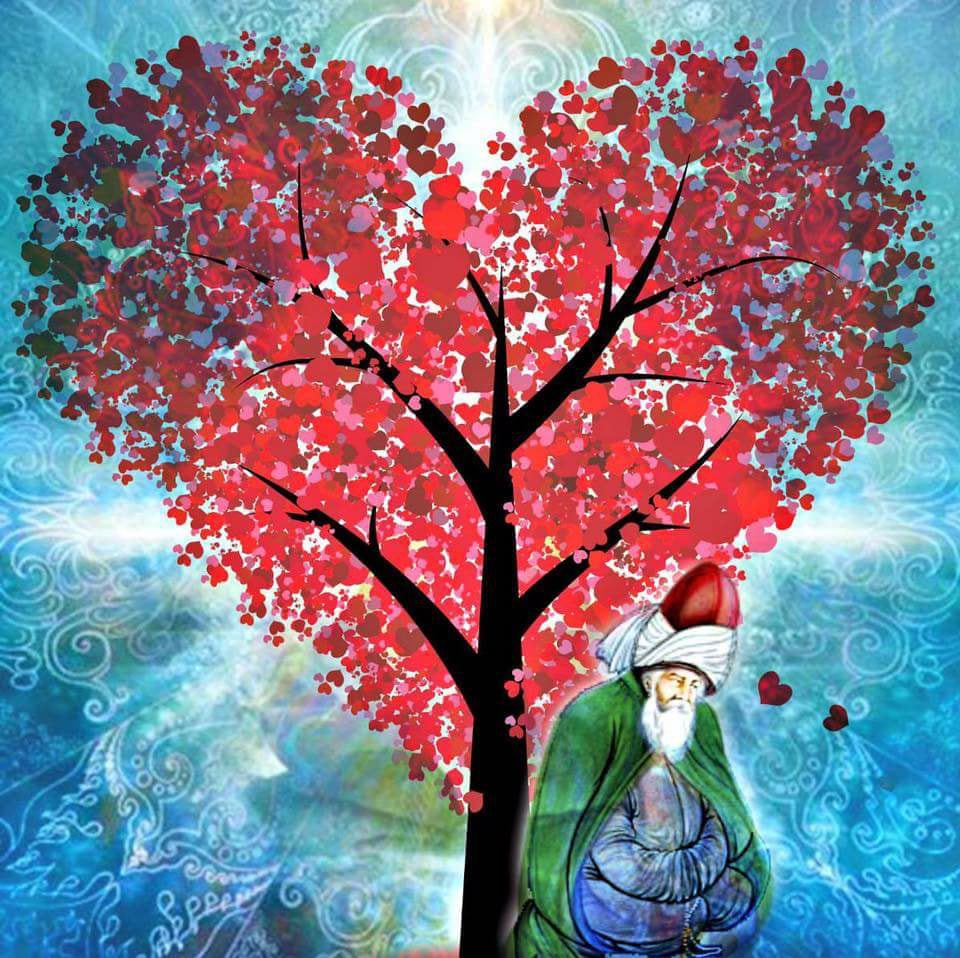
My Allah! You are The First and The Last! Your End has no end. And this year is the New Year. O Allah! I wish from You, with Your Compassion, that within this year I may be protected from the Devil whom one stones, that You might help me against the nafs which orders me to do so many wrongful deeds, that I might be occupied with things that bring me closer to You, and that I might avoid the things that will take me away from You. O Allah, Whose Grace is widespread, and Who showers His Mercy especially on the faithful, and Who possesses Greatness, Favour, and Grace, this is what I wish from You!
[Mevlana’s prayer, Manaqib-al Arifin by Aflaki]
January Theme
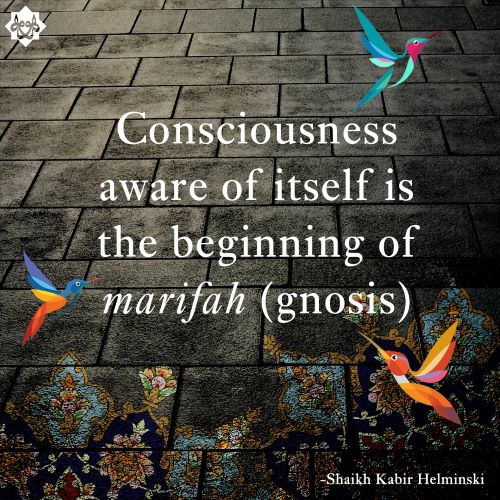
Consciousness aware of Itself is the beginning of marifah (gnosis).
~ Shaikh Kabir Helminski
We welcome your reflections on this theme.
***
Tazeen.TV in conversation with Camille Helminski
Camille Helminski in conversation with Tazeen Dhunna on how she fell in love with Rumi, the Sufi path, and what it brought to her heart.
***
Reflection on December theme: Freewill is the effort to thank God.
~ Mevlana
~ Nuray Akalin [Istanbul, Turkey]
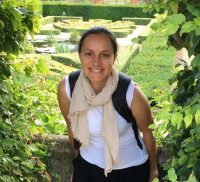 When I started to reflect on this theme, each word brought some different thoughts and memories into my mind.
When I started to reflect on this theme, each word brought some different thoughts and memories into my mind.
First of all, I started to think about the gifts of God and how Generous Hu is and how Hu’s Rahmah covers all created things. Blessings such as water, air, this earth, sustenance, life and countless others are bestowed continuously. In the Quran, God asks us in a lot of verses why we are not grateful for all these blessings. I want to share one of them that touches me the most, as my job is to contemplate water:
Have you ever considered the water which you drink? Do you bring it down from the clouds or do We? Were it Our will We could make it salty and bitter: Why, then aren’t you grateful?
[Surah Al-Waqiah 56:68-70]1
In my daily, ignorant life, I mostly take them for granted. Freewill arrives to make the effort to be aware and be grateful.
When thinking about God’s gifts in my personal experience, the question I ask myself is: Isn’t everything we experience a gift from God (even though it is not easy for me to accept that the things which I find difficult are gifts)? I mostly dwell in the “poor me’s”, quickly forgetting my “rich me’s” which are actually much more common. Most of my hardships have already ended up being blessings which I could have never have imagined. Here is Mevlana giving some clues about how it should be:
Both good and bad luck
become guests in your heart…Whenever sorrow comes again,
meet it with smiles and laughter,
saying, “O my Creator, save me from its harm:
and do not deprive me of its good.
Lord, remind me to be thankful,
let me feel no regret if its benefit passes away.[Mathnawi V, 3686, 3694-95]2
Another thought that comes to heart about the gifts we are given is: I’m not sure if I can experience God’s blessings fully. There is a saying in Turkish which I really don’t like: “The one who smiles a lot, cries a lot too.” This cultural nonsense stops me experiencing the gifts fully. Every time I have been blessed with them, I always feel great anxiety: the fear of losing them is seeded in me and I find myself waiting for “my turn to cry”. This kind of thought really prevents me from enjoying them. I wish to conceive of things like Rumi’s poem “The Guest House”. Every day I try to say thank you to God or alhamdulillah as I was taught. But this feels so superficial, knowing that I can’t really enjoy Hu’s gifts. Knowing this at an intellectual level is not enough: the heart should know it as well, because only the heart has the capability and power to experience the gratitude. I believe that presence is the key. The first time I heard about presence was when I met Kabir Dede in London a few years ago. It took me a long time even to grasp the concept, but I started to realize every day that there is not much one can do without presence, as Dede said. In order to accept gifts, benefit from them sincerely, and be thankful, presence is the starting point. It may not be possible to be filled with gratitude if one is not present.
Nonetheless, I can’t stop thinking about the most pleasurable and joyful moments of gratitude. I have a quite recent memory about a gift and feeling thankful: One day, a dear friend gifted me a pair of earrings. When I said thank you, she replied to me that “God is the Giver of all Gifts”. This was the first time I heard such a sincere and convincing response. For a few seconds, I felt like I was standing alone with God, as my friend took herself out of the moment. I remember that I was overwhelmed with the idea of receiving a gift from God at that very moment. At that time, I hadn’t recognized that this statement was in the Wird and a verse in the Quran: You are the Giver of Gifts (Surah Al-Imran 3:8)3. As commonly happens, I was going to return back to my ignorance concerning this proposition but another ‘gift’ reminds me frequently. Every time I meet with my father, he hugs me really tightly, and if I wear these earrings, it really hurts and it immediately reminds me that God is the Giver of Gifts. This small pain turns to deep gratitude. When I think about my father, my friend, the earring and the hug, the moment always becomes like a communion of gifts dancing around me. But the question is: what could I do to feel the same for every gift?
My experience is that thankfulness is also a gift of God. If thankfulness comes from Ash-Shakur, is it also a destiny? Is there any way to push it, or should we wait to be blessed with it? At that moment the idea comes to my mind that praying and increasing presence are the keys to developing my capacity to be thankful. As Mevlana says in the theme: “Freewill is the effort to thank God.”
Freewill is the effort, and even this effort is a Gift from the Giver of all Gifts. It is not something I can command, so I would like to share Prophet Solomon’s Prayer:
O my Sustainer! So direct me that I may be grateful for Your blessings…
[Surah An-Naml, 27:19]4
~ Nuray is an environmental engineer who was born and raised in Istanbul. She lived in London between 2015-18, apparently to meet Threshold and feel at home there.
1 Surah Al-Waqiah, 56:68-70, The Light of Dawn
2 Mathnawi V: 3686, 3694-95, The Pocket Rumi
3 Surah Al-Imran, 3:8; The Mevlevi Wird
4 Surah An-Naml, 27:19; The Light of Dawn
***
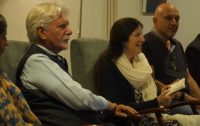 PODCAST: Open Your Arms
PODCAST: Open Your Arms
From Shaikh Kabir and Camille’s London visit in August.
***
The Threshold Society
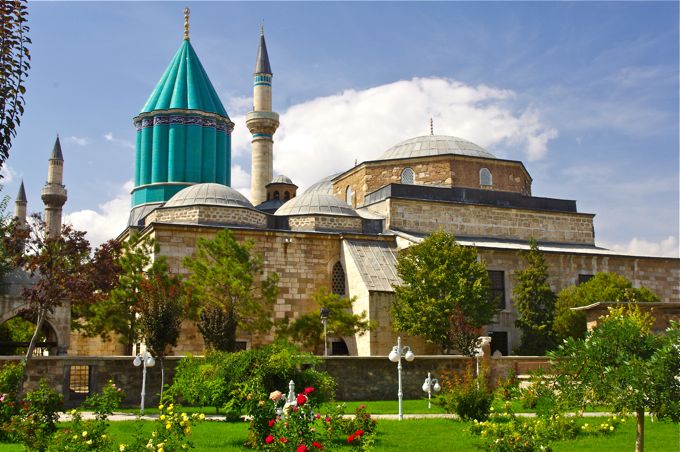 The Threshold Society, rooted within the traditions of Sufism and inspired by the life and work of Mevlâna Jalâluddîn Rumi, is a non-profit educational foundation with the purpose of facilitating the experience of Divine Unity, Love, and Truth in the world. Sufism is a living tradition of human transformation through love and higher consciousness. Our fundamental framework is classical Sufism and the Qur’an as it has been understood over the centuries by the great Sufis. The Society is affiliated with the Mevlevi Order, and offers training programs, seminars and retreats around the world.
The Threshold Society, rooted within the traditions of Sufism and inspired by the life and work of Mevlâna Jalâluddîn Rumi, is a non-profit educational foundation with the purpose of facilitating the experience of Divine Unity, Love, and Truth in the world. Sufism is a living tradition of human transformation through love and higher consciousness. Our fundamental framework is classical Sufism and the Qur’an as it has been understood over the centuries by the great Sufis. The Society is affiliated with the Mevlevi Order, and offers training programs, seminars and retreats around the world.
Each month we intend to highlight an article about our lineage and its principles. This month we offer: The Mevlevi Zhikr
In order to attain the optimum coherence and beauty in our practice, we should be aware of how we perform zhikr in our tradition.
[Read more and listen to the Mevlevi zhikr…]
***
Circle Spotlight: Wilmslow, UK
by Fatimah Ashrif
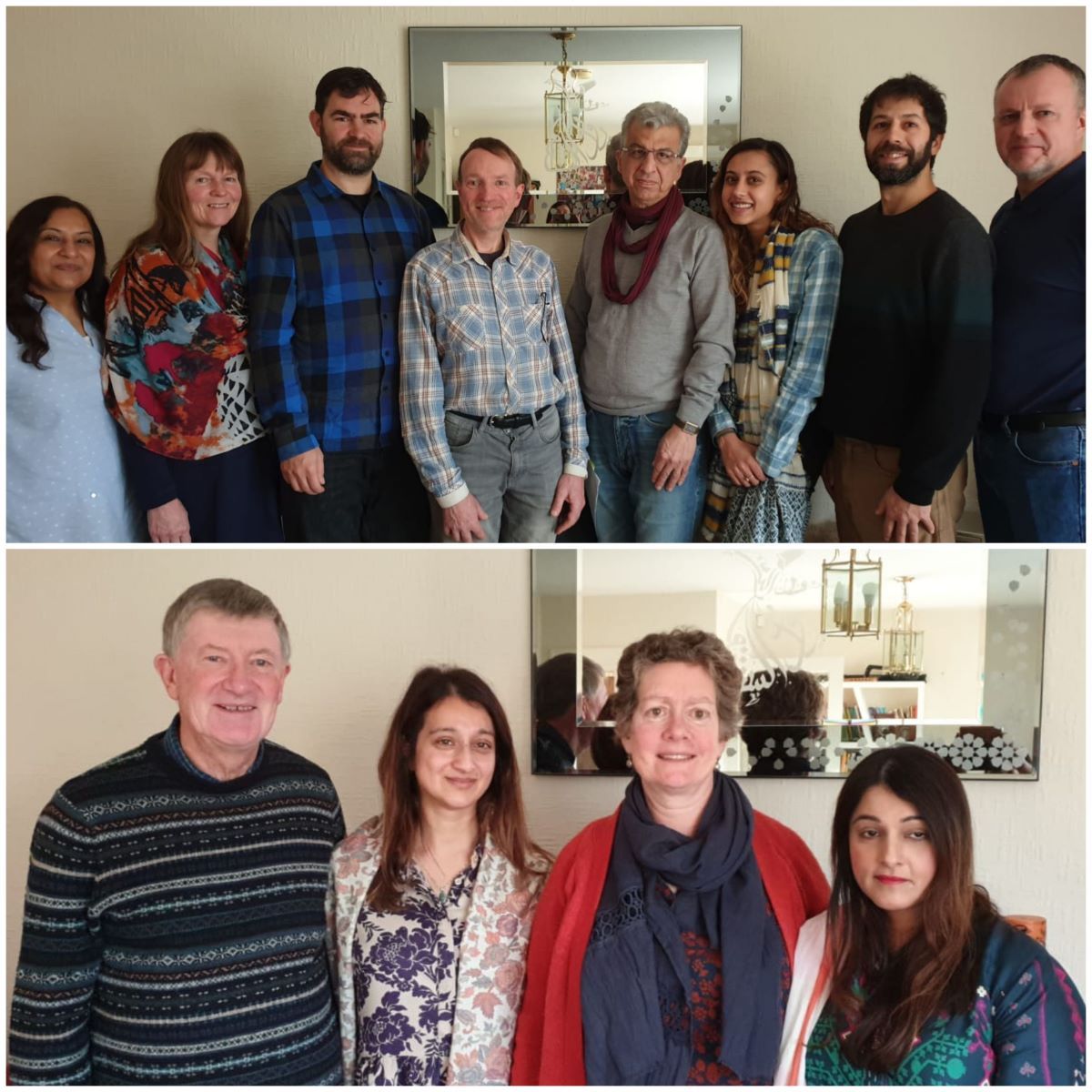
We meet monthly in Wilmslow, Cheshire – a quiet little town outside Manchester – for zhikr, to reflect on the teachings of Mevlana Rumi and Sufi texts inspired by or of the Mevlevi tradition, and to “break bread” together. At present we are enjoying reading Living Presence by Shaikh Kabir. So much so that most have expressed a wish, on finishing, to begin again from the start! Occasionally, we meet mid-month more informally for coffee and Ruminations*. Bound by a love for Mevlevi spiritual practice, we come from various walks of life.
If you would like to visit our circle please get in touch: fatimahashrif@gmail.com
See all international circle details here.
*Ruminations = coffee-shop conversations of the heart inspired by Mevlana’s poetry.
***

Threshold’s collaborative blog channel The Living Tradition on Patheos.com is reaching new audiences and sharing the experiences of our community in a unique and vibrant way.
Let us know what you think by commenting on the posts — join the discussion at www.patheos.com/blogs/livingtradition and “follow” The Living Tradition.
Recent articles:
My Mother’s Humanness and Divine Love by Mahmoud Mostafa
A Very Muslim Christmas by Saimma Dyer
***
Recent Publications
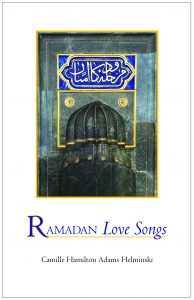
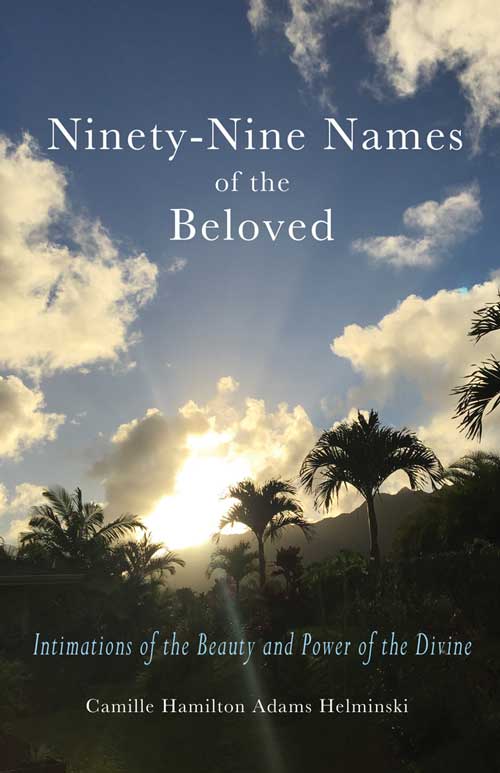
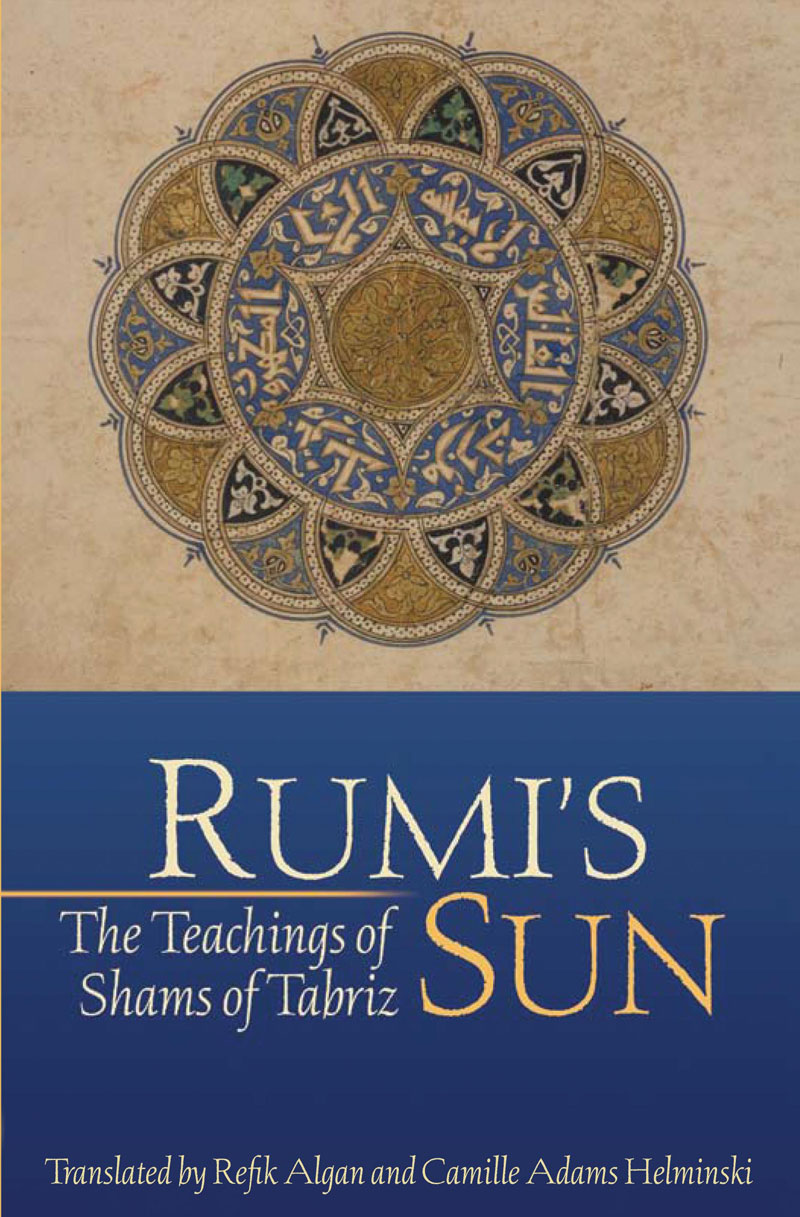
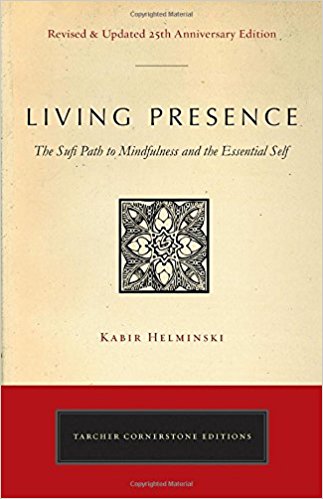
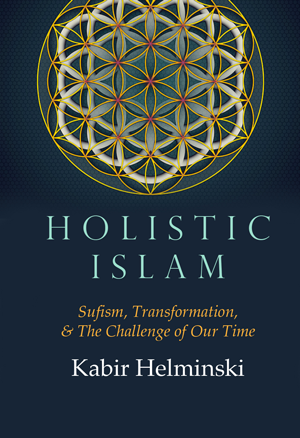
We encourage you to leave reviews on Amazon.
And remember you can donate to Threshold Society through Amazon Smile.
For AmazonSmile US: smile.amazon.com
For AmazonSmile UK: smile.amazon.co.uk
We appreciate your support.
***
Calendar
Feb 1-8: Costa Rica Writer’s Retreat. More details. (KC)
Mar 21: New York, Open Center. Journey of the Seeker in Sufism. More details. (K)
Apr 3-5: San Francisco, USA. Annual Retreat. (KC)
Jul 10-13: Dorset, UK. Annual Retreat. (KC)
Events with Kabir (K) & Camille (C)
***
Urs Gatherings
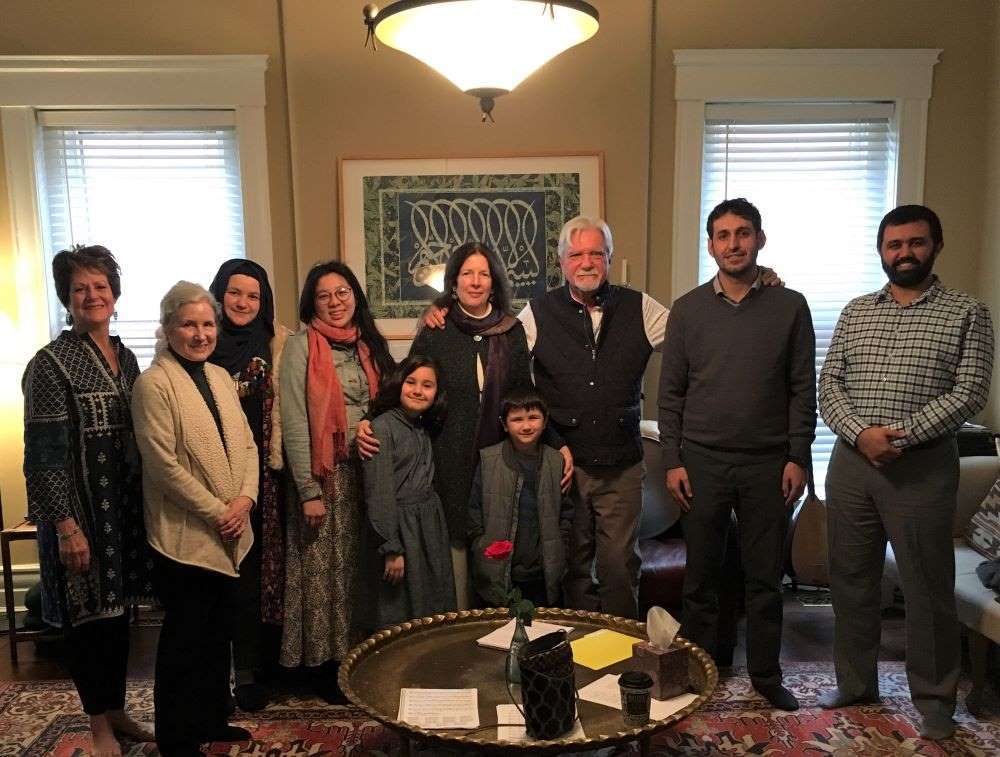
Threshold dervishes from Saint Louis visiting Louisville for Urs
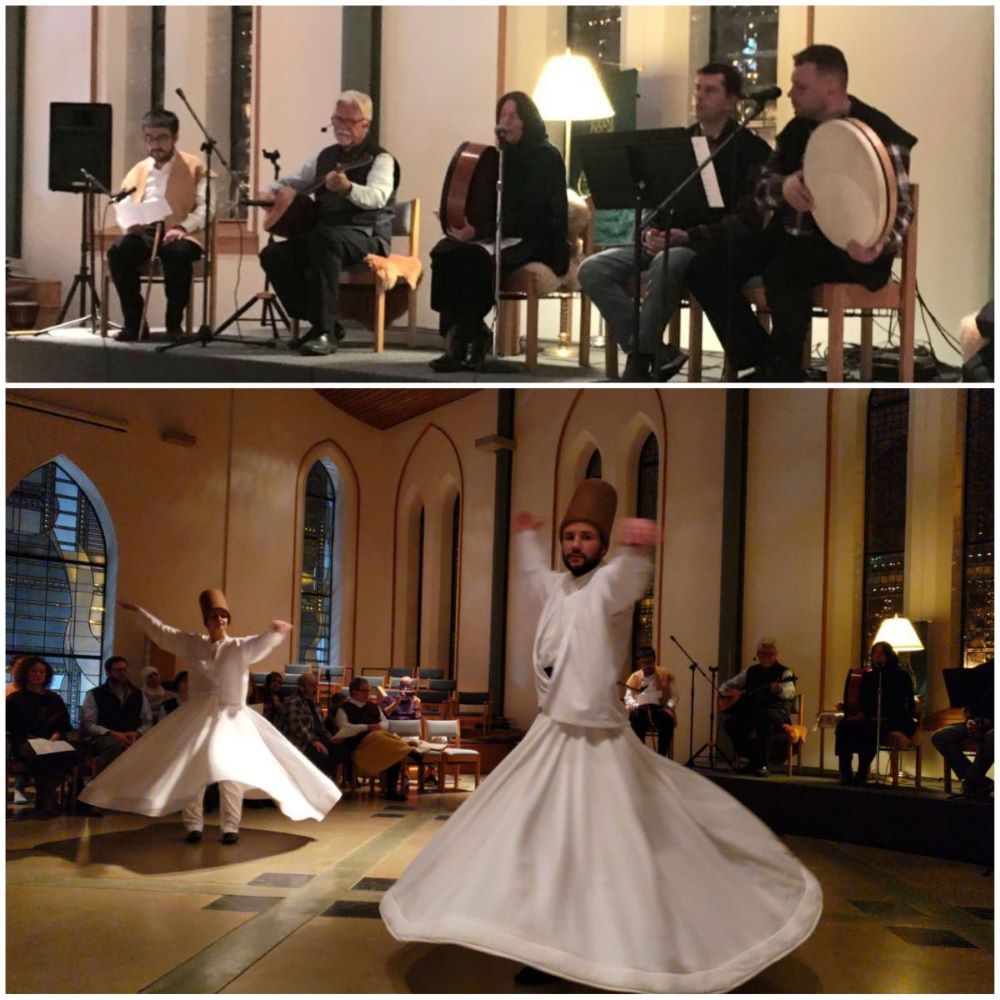
Louisville
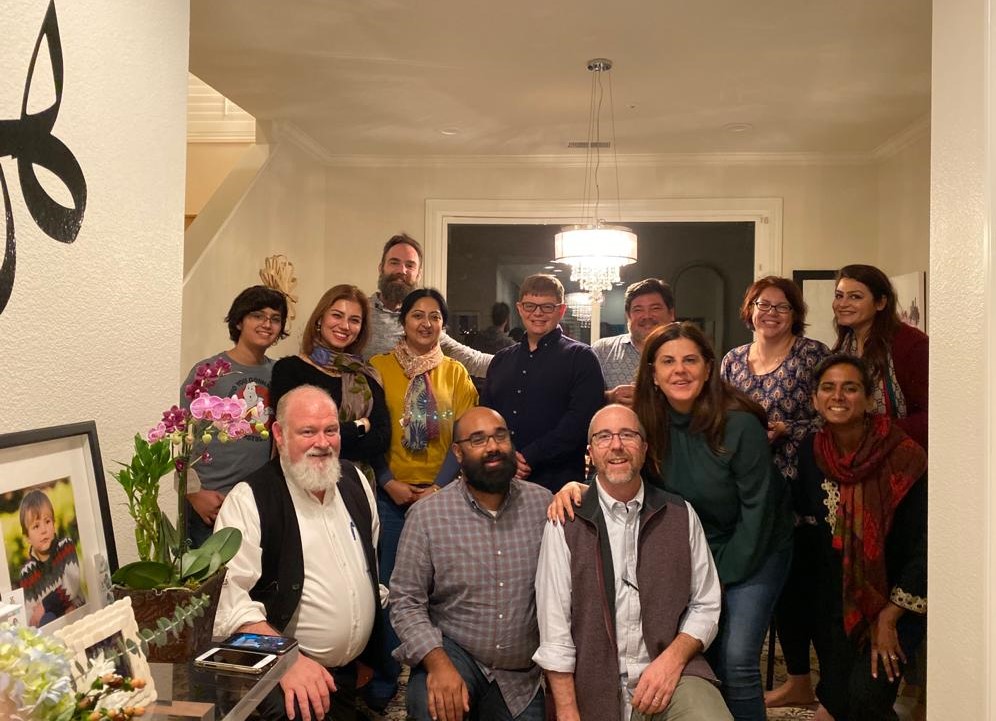
Bay Area
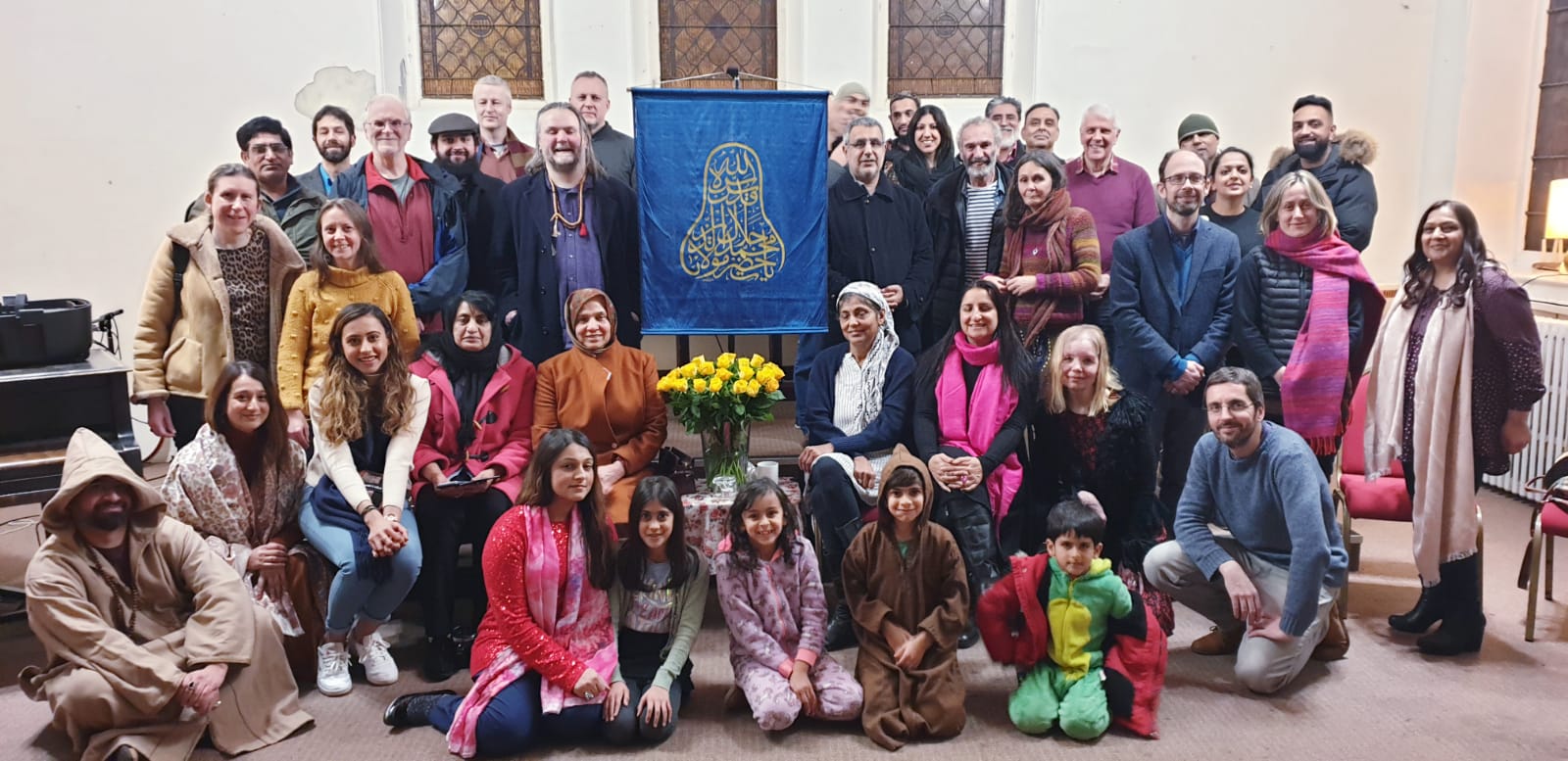
Bradford
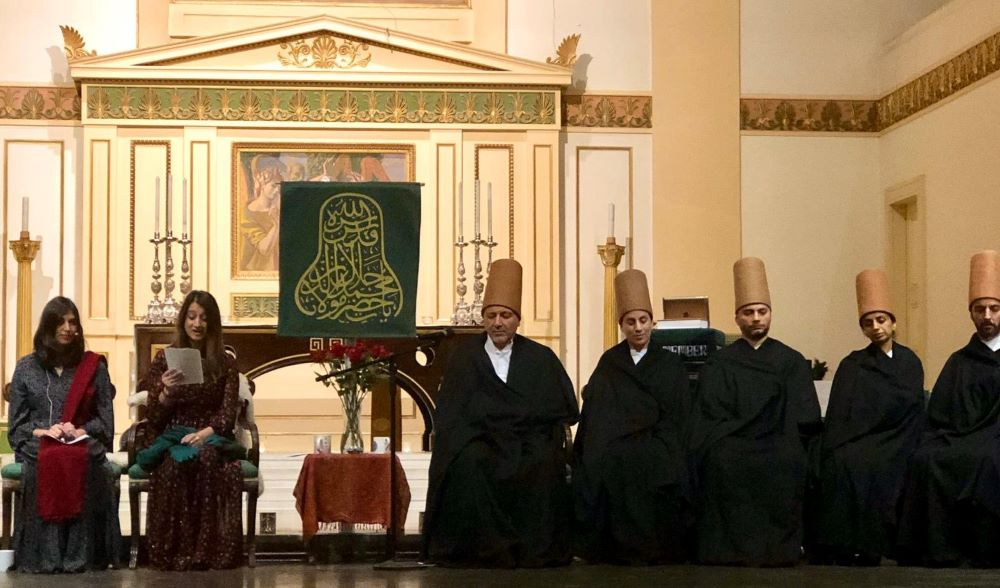
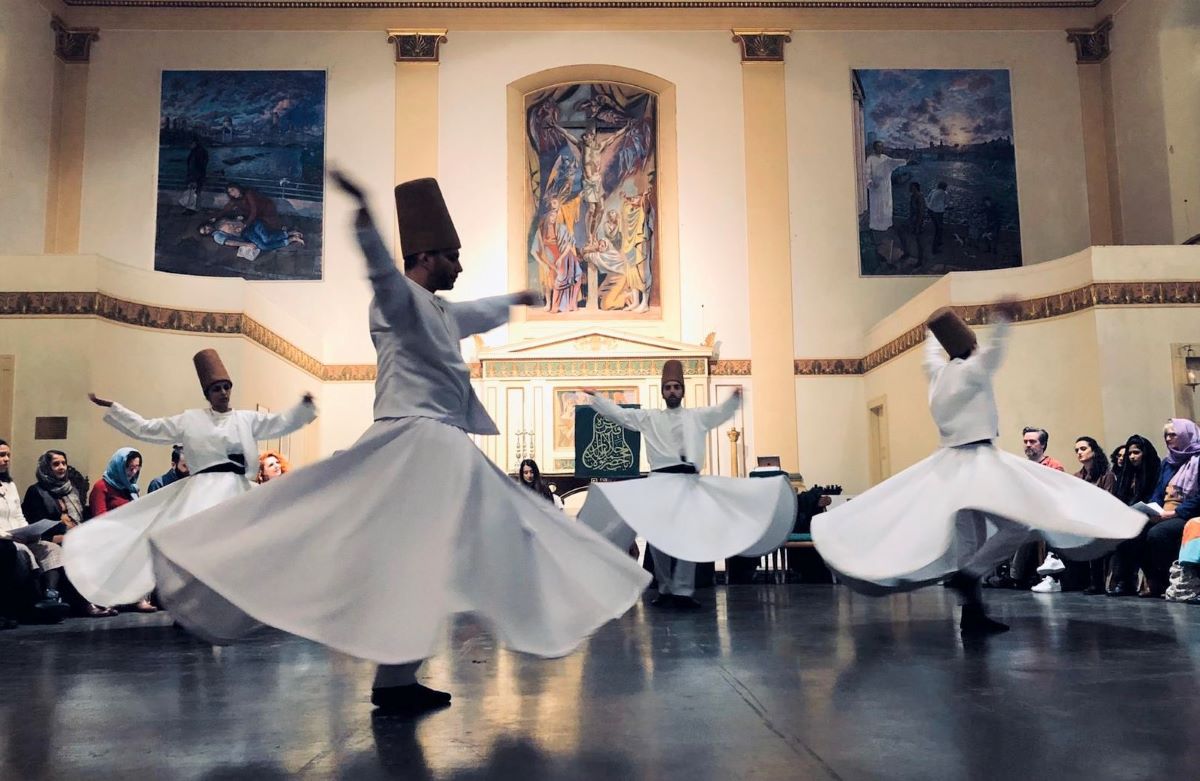

London
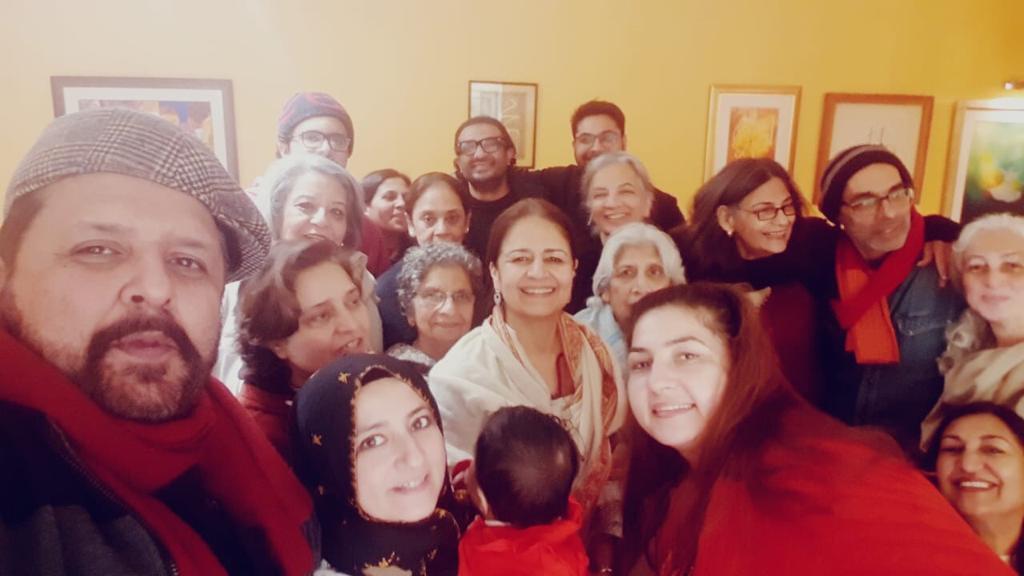
Islamabad
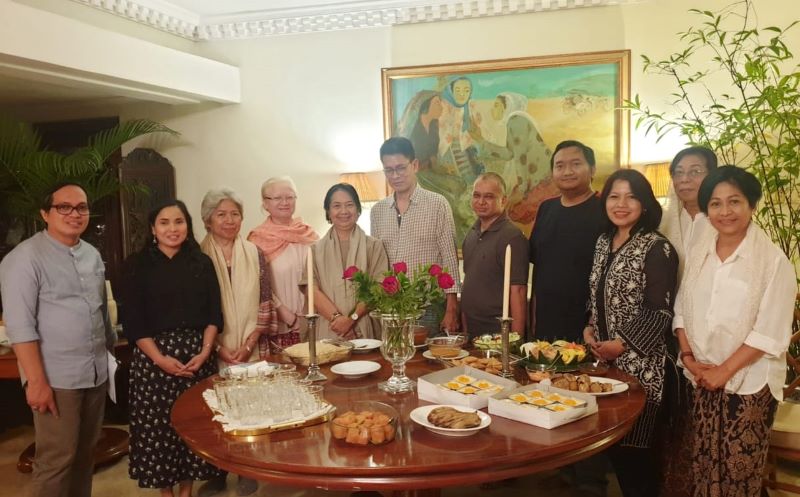
Jakarta
***
We’d love to hear from you – get in touch at eyeoftheheart@sufism.org
***
Find out how to support the work of Threshold Society.
***
Receive this newsletter by email: sign-up here.

